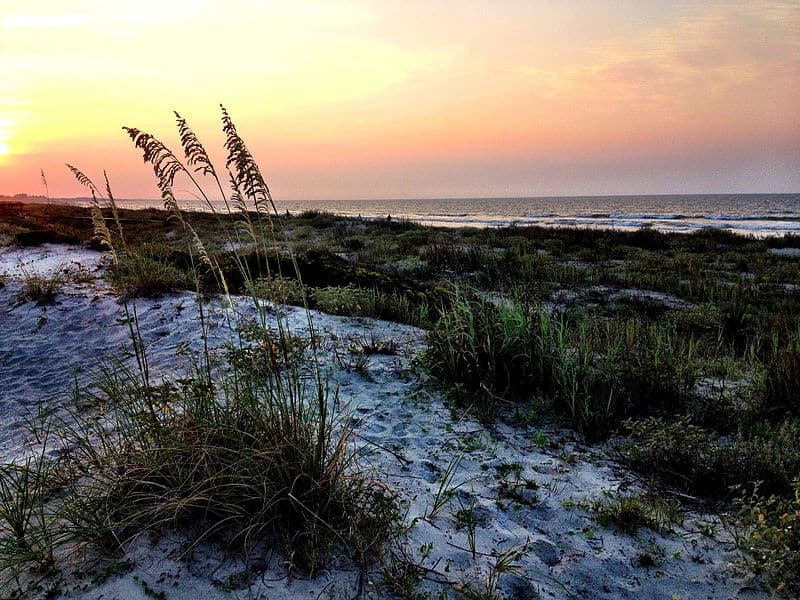Kiawah Island Facts
- Firstly, the tiny but quite magnificent Kiawah Island possesses multiple types of environments. The island virtually forms a rather remarkable geological, biological, and botanical sampler.
- Further, the impressive island primarily serves as as a resort area. This includes numerous gated beaches and golf courses. But the number of permanent inhabitants hovers at only around 1,600.
- Additionally, the dazzling small island received its name in honor of the local Kiawah Indians. Members of the Native American tribe originally led European settlers to the site in 1670.
- Finally, two locations on Kiawah Island make the list of the United States National Register of Historic Places. Beachwalker County Park also sits on the western end of the small island.
Related Articles
Kiawah Island Physical Description
Perhaps most notably, the terrain of Kiawah Island formed predominantly flat. In this, it remains much like many islands in the region. However, the total rough area of this astounding beauty only equals 13.4 sq mi (34.8 sq km).
It also boasts numerous small, naturally occurring waterways and ponds, found in abundance there. Just look at how they dot the island. These also account for roughly 18.4% of the surface area of the small island.
Further, narrow but beautiful beaches also line the edges of the highly elongated island. Yet Nature did not stop there. Numerous small areas of marsh also appear on this marvelous site.
Kiawah Island Location and Ecology
First of all, while astonishingly beautiful, Kiawah Island constitutes a small barrier island. In addition, this marvel of Nature lies situated on the eastern shores of the United States, in the Atlantic Ocean.
Furthermore, the geological marvel formed roughly 25 mi (49 km) southwest of Charleston, S. Carolina.
Also, a relatively small but still dense area of forest occupies the approximate center of the island. Officials named this a protected area. While comparatively small, this forest still supports a relatively prosperous ecosystem.
Finally, Bald Eagles and bobcats remain among the animals found within the confines of this protected zone.
Features Sharing Its Region
Check out our other articles on 5 Rare Mind-Blowing Cloud Types, Gibraltar Campion, Fingal’s Cave, Yangtze River Dolphin, Greenland Shark, African Penguin, Southern Magnolia

